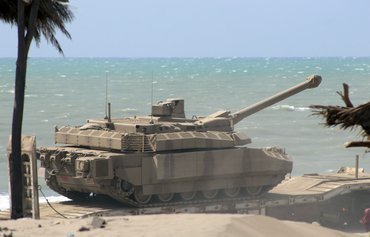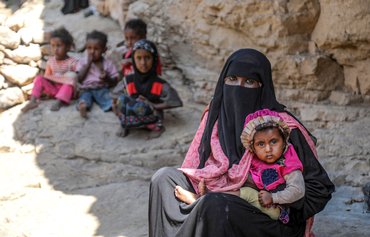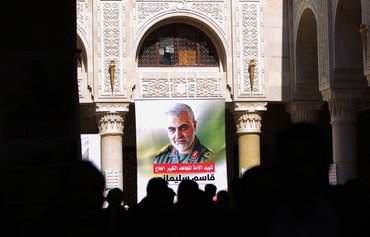A recent study has revealed that Islamic Revolutionary Guards Corps Quds Force (IRGC-QF) commander Qassem Soleimani's last act in Yemen was to supervise the delivery of an air defence system to the Houthis (Ansarallah).
The Abaad Centre for Studies and Research study, released January 16th, looks at Iran's influence in Yemen after Soleimani and says that the Islamic Republic's plans in Yemen are currently in disarray.
Soleimani was killed in a January 3rd US airstrike in Baghdad. His death is "a major turning point" for Yemen's and the Gulf's security, the study said, anticipating that Iran will seek to ramp up its influence in Yemen in order to bolster its frontlines.
New Quds Force commander Esmail Qaani has already shown a keen interest in Yemen, just like his predecessor, it said.
Unit 190 of the Quds Force, whose mission is to smuggle weapons to the Houthis, was under Soleimani's and Qaani's direct supervision, the study said.
However, "Iran's plans in Yemen are currently in disarray, as Saudi Arabia has been able to persuade some Houthi leaders to reconsider their alliance with Iran," it said.
Some Houthi leaders, especially from Hashemite families, have been reconsidering their alliance with Iran, said Abaad director Abdul Salam Mohammed.
This has triggered retaliation from the militia, which has been suffering from infighting and internal strife in recent period, he told Al-Mashareq.
Post-Soleimani changes
The study found that the Houthi militia has become a vital part of the IRGC's regional outlook, and that "the organising, arming, training and financing of the group comes from Iran", Mohammed said.
It is expected that Qaani would follow the same aggressive strategy in Yemen as Soleimani, since he views Yemen as "Iran's low-cost battle", he added.
"After Soleimani, Iran will try to turn Yemen into a forward front in preparation for any escalation with the US," Mohammed said.
"Yemen's proximity to strategic areas of the Gulf region, particularly Saudi Arabia, as well as the country's access to Bab al-Mandeb enable Iran to threaten international trade corridors [via the Houthis] if it decides to close the Strait of Hormuz," he said.
He said the Houthis might try to escalate tensions not just in retaliation to Soleimani's killing but also to grant them more leverage in future peace negotiations with the Yemeni government and the Saudi-led coalition.
"Houthi escalations have already lit the fuse of war with the firing of a missile at a camp in Marib that killed [116 people] and injured dozens," he said.
The Iran-backed militia has also resumed fighting in al-Dhale to the south, and in Nahm and Sirwah near Marib province, east of Sanaa.
And on January 22nd, a Houthi missile targeted the home of Yemeni MP Mossad Hussein al-Sawadi in Marib, killing his daughter-in-law and 16-year-old granddaughter.
Political analyst Faisal Ahmed said these attacks aim to "draw attention to the fact that Iran's proxies in the region, the Houthis in particular, still possess missile capabilities that enable them to carry out attacks".
However, Ahmed said he was skeptical about the future of the Houthis, stressing that "the post-Soleimani period will bring with it changes" for the Houthis.
Air defence technology
"Iran is building air defence stations in Houthi-controlled areas, including five jamming stations," military expert Col. Yahya Abu Hatem told Al-Mashareq.
Effective use of the air defence system by the Houthis would neutralize air power in the battle to retake Yemen from the militia and change the outcome of the war in Iran's favour, he said.
The Arab coalition and Yemen National Army should continue to work to prevent the Houthis from using such systems, Abu Hatem stressed.
Political analyst Faisal Ahmed said that Iran was transferring air defence technology to the Houthis, noting that "one of the tasks of Iranian military commander Abdul Reza Shahlai in Yemen is to supervise the setup and installation of the air defence system".
If Iran succeeds, he said, "it will further tighten its military grip and pose a greater threat to the region's security and the stability of international navigation".

![Newly recruited Houthi fighters chant slogans as they ride a military vehicle during a gathering in the capital Sanaa to mobilise more fighters to battlefronts to fight pro-government forces in several Yemeni cities, on January 3rd, 2017. [Mohammed Huwais/AFP]](/cnmi_am/images/2020/01/31/22195-houthis-yemen-chant-600_384.jpg)






